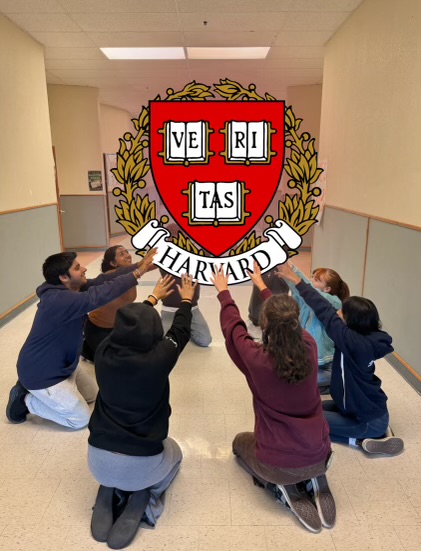Image from author.
We can all agree that college applications are a tedious and draining process. The grueling essays and paperwork make the application process complex enough. Yet, applicants will put themselves through even more labor and spend enormous amounts just to apply to a prestigious university, in the small chance that they get in. This mental torture raises the question of what the big deal is behind prestigious colleges, and if it even matters where you go.
Many students become attracted to top-rated colleges since there’s an assumption that these schools typically offer better professors and programs. However, the definition of what makes a good professor is one to consider. Although prestigious colleges are known to have award-winning, famous professors, a knowledgeable professor doesn’t always equate to a good teacher. While it is impressive to have a world-renowned professor, there’s no point if they aren’t able to effectively share their knowledge with their students.
Additionally, location is something that affects where many students apply. While some people need a sense of familiarity to flourish, others may wish for a fast-paced, exciting college experience. Although college is just four years of your life, four years can feel like a long time if you’re not in an environment where you feel good. Being in the wrong place will ultimately impact your health and academic performance. “If I woke up every day and saw rainclouds every day, I would be sobbing,” a staff reporter says. “How can I read the book if there are teardrops there?” Alongside mental health, a school’s location can help students obtain internships and network. With specific majors such as film, college location can play a huge role in obtaining jobs, as that specific industry doesn’t flourish everywhere.
On the other hand, there’s always something to do wherever you are; it’s just a matter of what you make out of it. For instance, moving to Ohio for college may seem socially dead, but with an open mind, there could be many potential hobbies and activities waiting to be discovered there.
Familial pressure and family dynamics also play a significant role for students who feel the need to go to top colleges. For instance, older siblings tend to face a lot of pressure, as there’s the fear of “setting a bad example” by not picking the right major or college. On the other hand, younger siblings face stress as well, as there’s an expectation that you have to live up to your older siblings. While this ideology can be found in all households, this strain is more commonly found in immigrant families, as families typically immigrate to the US because they want their children to succeed. “Following your dreams is a privilege,” a staff reporter notes.
There are also numerous cultural differences that parents may have faced growing up that aren’t relevant today. For instance, in some countries, there is a huge difference between a ‘good’ and a ‘bad’ college. In the US, however, you can get relatively the same education, regardless of college rankings.
Sometimes it seems as if the only point of going to a prestigious university is to obtain bragging rights. Whether you want to become a rocket scientist or a teacher, prestigious colleges are not always the answer for everyone. If you find yourself applying to top colleges on a whim rather than with confidence, consider broadening your horizons as you never know what a state college can do for you.

